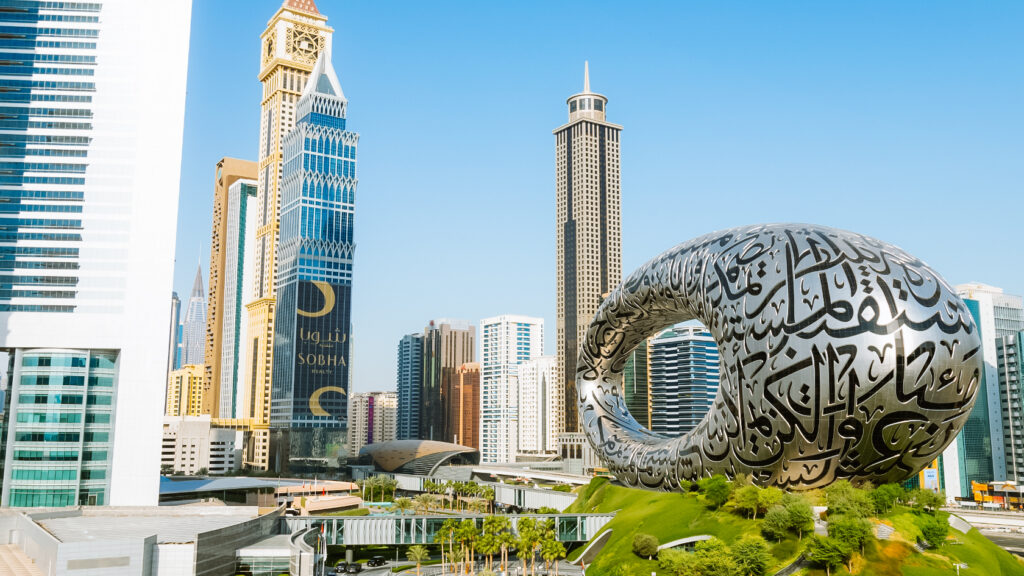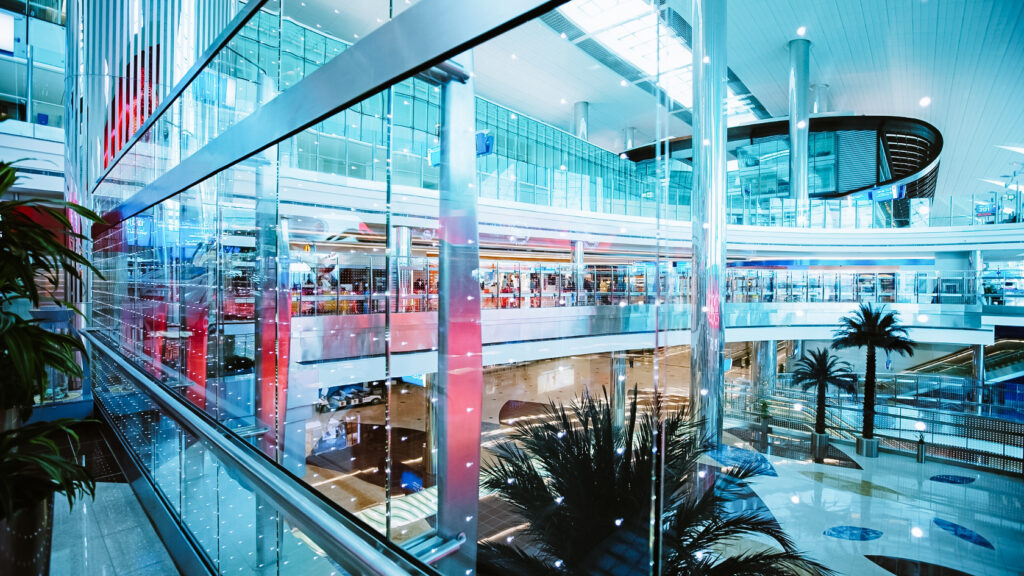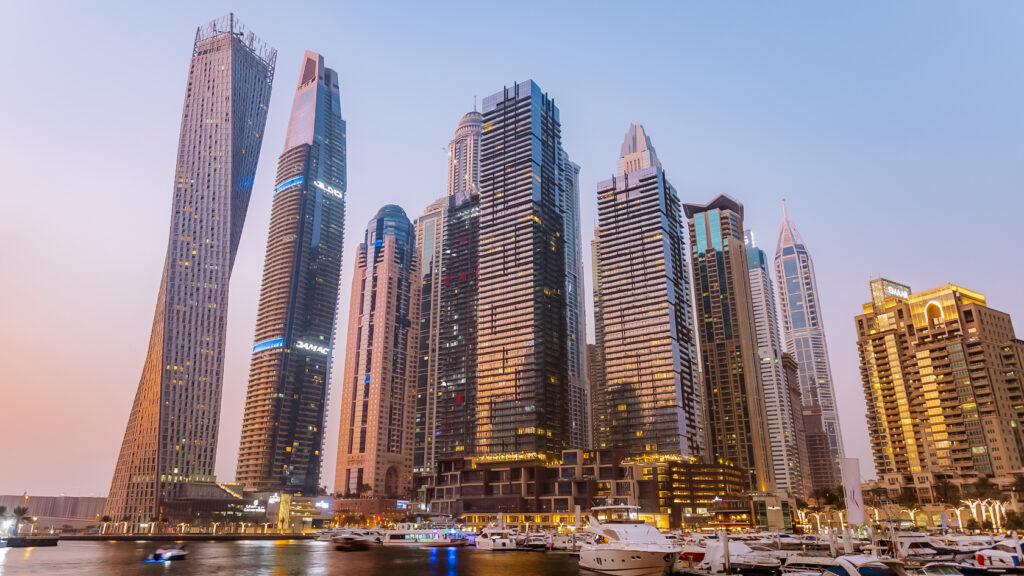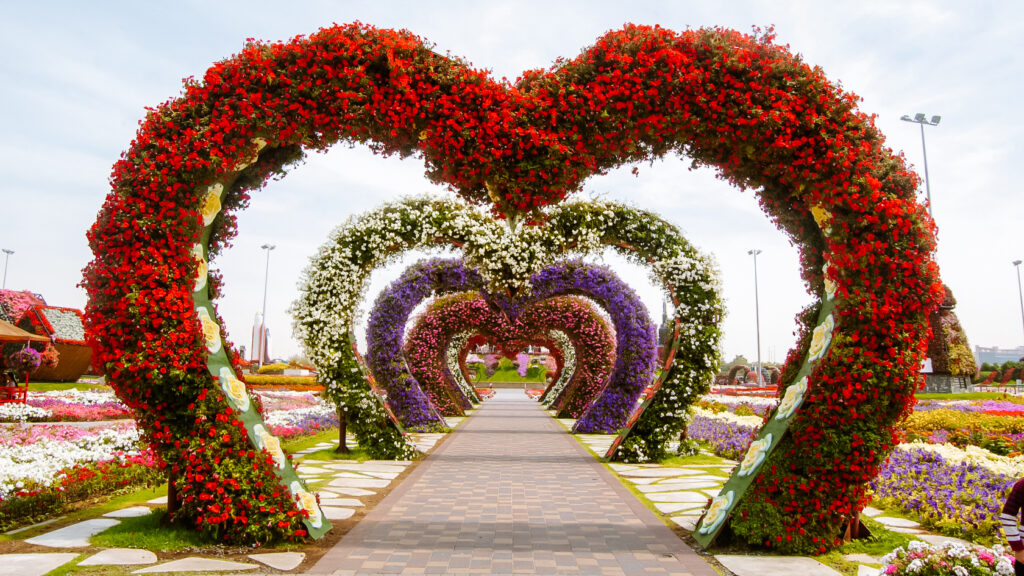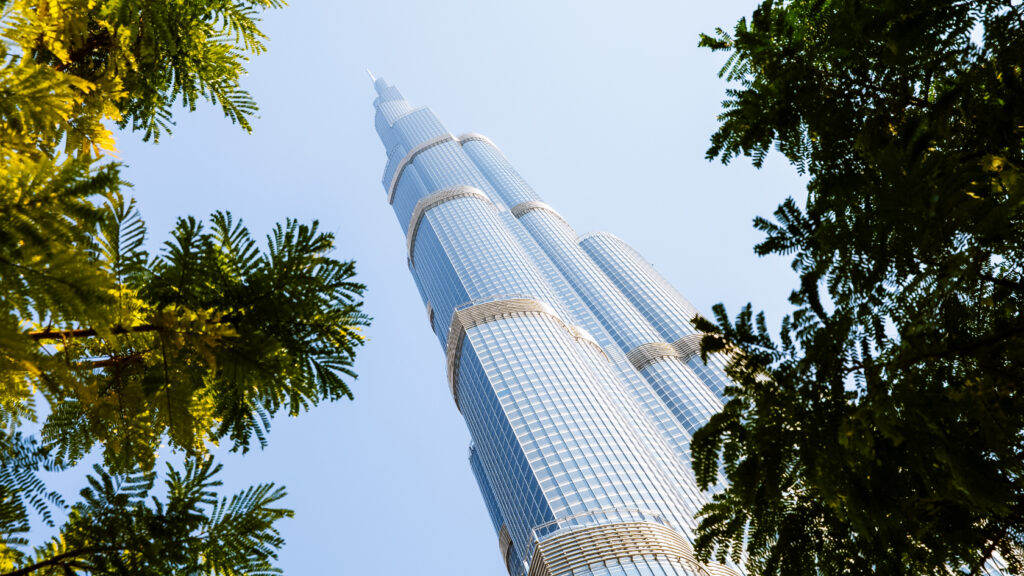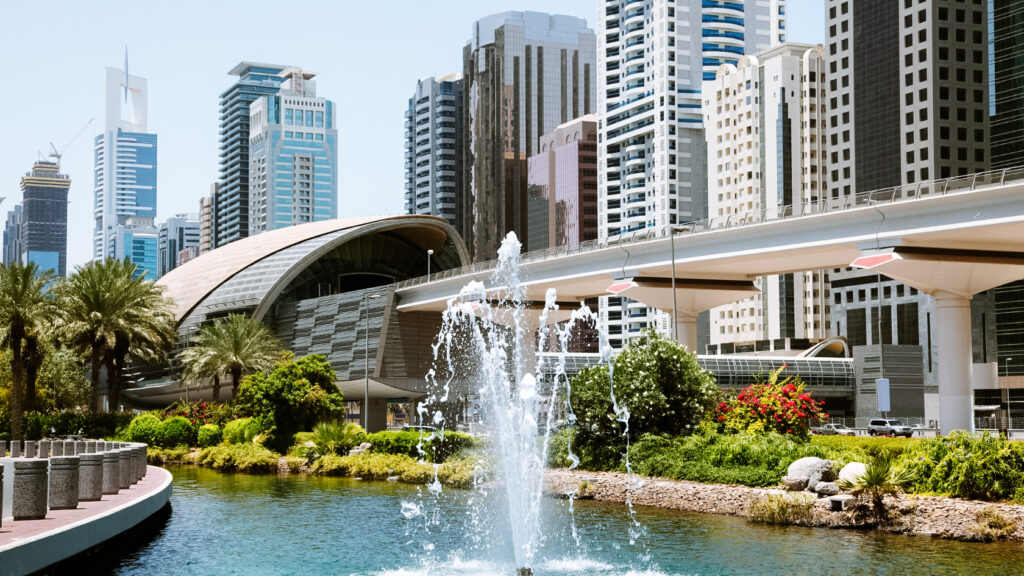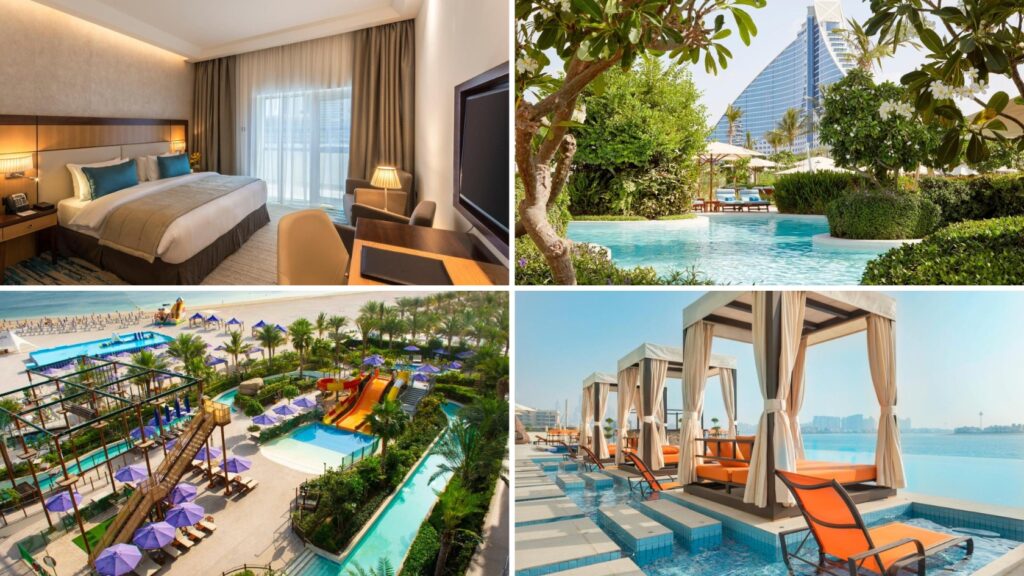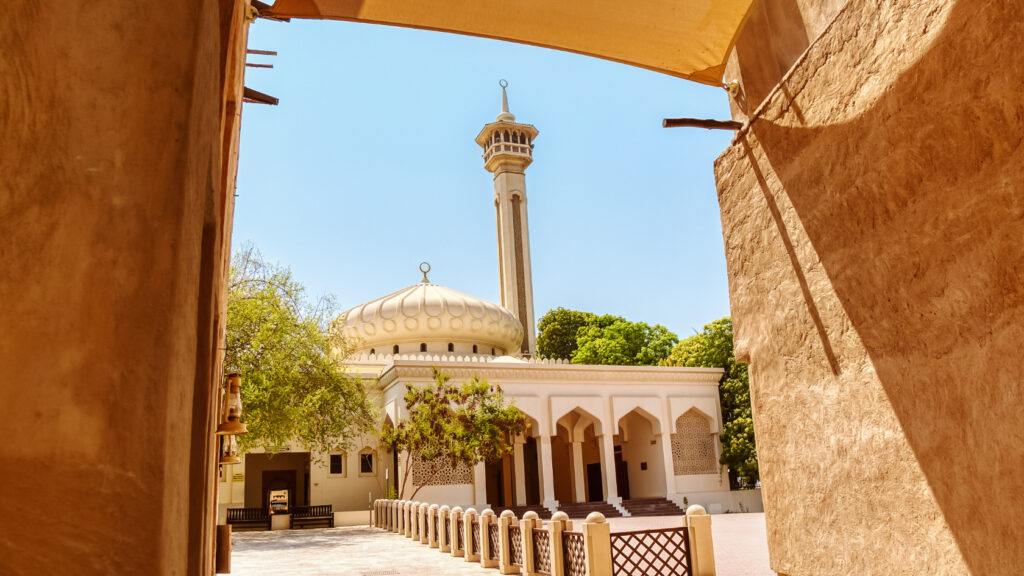TRAVEL GUIDE FOR THE UNITED ARAB EMIRATES
Discover the United Arab Emirates, a land of contrasts where breathtaking modern architecture, rich culture and spectacular natural beauty come together. From the golden beaches of Dubai to the majestic sand dunes of Abu Dhabi.
DUBAI
Flying to Dubai and how to get from the airport to downtown Dubai (tips and map)
Looking for the best ways to travel by air to Dubai in the…
Dubai Travel Guide: How to plan perfect trip to Dubai (+ map)
Planning a holiday in Dubai? Here’s a Dubai travel guide and our tips…
Dubai Pass: How to save in Dubai?
Dubai Pass is a tourist card that includes entry to popular sites and…
How to visit Burj Khalifa in Dubai – practical tips for the world’s tallest building
Burj Khalifa in Dubai receives over 6 million visitors a year – everyone…
Dubai Transport: Complete guide to the Dubai Metro and public transport in Dubai
Transport in Dubai can be a challenge for new visitors, but with a…
35 Things to do in Dubai: Best places to visit (+ map)
Looking for the best places to visit in Dubai? Check out the things…
9 Best Hotels in Dubai for every budget (2026) + map and practical tips
Dubai is one of the most popular destinations in the world. This goes…
Interesting Facts and History of Dubai – Facts about Dubai that will surprise you
Dubai beckons with its combination of luxury and history. This keeps it at…
USEFUL INFORMATION
When to visit the United Arab Emirates
Each season brings different temperatures and weather in the UAE. The best time to visit depends on what you plan to do in the UAE:
Spring (March to May): Spring is one of the best times to visit the UAE, when temperatures are initially mild, ranging between 20°C and 30°C. The perfect time to visit beaches and sights without the extreme heat. The end of spring may bring warmer temperatures, signalling the approach of summer.
Summer (June to August): The UAE summer is characterised by very high temperatures, often exceeding 40°C, and high humidity, especially in coastal areas. If you’re mainly planning to visit shopping malls, water parks and other air-conditioned attractions, summer can be a good option.
Autumn (September to November): Autumn brings a gradual cooling with temperatures starting to hover around a pleasant 25°C to 35°C. The ideal season to visit the beaches and desert. The tourist season is starting to pick up, especially in November.
Winter (December to February): The winter months are the best time to visit the UAE due to the ideal temperatures for all types of activities, from sightseeing to relaxing on the beach. Temperatures range from 20°C to 25°C. Various cultural and sporting events are held in winter.
Transportation in the United Arab Emirates
Public transport
Travelling around the UAE is convenient and efficient thanks to a modern and well-connected transport system including metro, buses and taxis.
The mainstay of urban transport in the UAE, particularly in Dubai and Abu Dhabi, is the metro and tram network. Dubai Metro offers two main lines that connect key parts of the city, including the airport, shopping malls and business districts. The metro and trams are fast, clean and air-conditioned. Information on timetables and routes can be found on the RTA website.
For journeys beyond the reach of the metro, RTA buses provide an extensive network of routes covering the entire Emirates, including outlying areas and suburbs. The buses are air-conditioned and comfortable. Tickets and connection information are available online at the RTA website. Just beware that paying by card for tickets is not always common. You should carry cash with you, as the machines at the stations have high fees.
You will see taxis at every turn in the UAE. Uber and Careem are also common in Dubai and Abu Dhabi.
There is no train network to connect the emirates, but there are plans to build an Etihad Rail network to connect all the emirates in the future.
The road network is supplemented by water taxis and charter boats.
By car in the United Arab Emirates
The road network in the UAE is of a high standard and among the most modern in the world. The motorways are free and without toll charges.
This does not apply to Dubai, where there is a toll gate called Salik. Salik is an electronic toll system introduced in Dubai in 2007 to regulate traffic, reduce congestion and encourage the use of public transport. The system works automatically without stopping or delaying, allowing vehicles to pass through the toll gates without interruption.
When you drive through the Salik toll gate, the fee is automatically deducted from the prepaid account associated with the vehicle registration number. Drivers must purchase a Salik tag, which is attached to the windshield of the car, and then deposit credit into their Salik account. The fee for passing through one toll gate is currently set at AED 4.
The maximum speed limit on UAE motorways is usually 120 km/h, with some sections allowing up to 140 km/h. In towns, the limit is usually 80 km/h and can be reduced to 40 km/h in densely populated areas or near schools.
If you plan to rent a car locally, it’s a good idea to book in advance during high season to ensure the best price and availability. Due to the quality of the roads and the generally high level of infrastructure, both large and small car models are suitable. In densely populated urban areas such as Dubai or Abu Dhabi, a smaller car may be more practical for parking and manoeuvring in heavy traffic.
Parking is well signposted and often available both on-street and in parking houses.
Culture and tradition in the United Arab Emirates
Culture
Cities in the UAE are like living museums, each telling its own story through a mix of traditional Arab architecture and groundbreaking modern construction.
Visit museums such as the Louvre Abu Dhabi or the Museum of the Future in Dubai to get a glimpse of the innovative spirit of the Emirates. Experience the rich cultural scene with opera and theatre performances at Dubai Opera.
In metropolises such as Dubai and Abu Dhabi, fashion also plays an important role. Elegance and style are ubiquitous, from fashion-inspired locals to luxury shops and boutiques with the latest fashion trends.
Traditions and festivals
Traditional aspects are very much present in everyday life, from architecture and food to celebrations and religious rituals. Islam plays a central role in the lives of the UAE’s people, which is reflected in the reverence for prayer times, the Ramadan period when Muslims fast from dawn to sunset, and general social etiquette.
Respect for local traditions and customs is key to a peaceful stay in the country.
Family and social life are extremely important in the UAE, which is reflected in the rich traditional celebrations and social events.
In Dubai and Abu Dhabi you can experience celebrations such as the Dubai Shopping Festival or UAE National Day, which are full of fireworks, entertainment and cultural performances. Traditional religious festivals such as Ramadan and Eid are celebrated with great pomp and show the deep religious and family values that characterise the Emirates.
The position of women in society
With regard to the status of women, the UAE has made significant progress towards gender equality in recent years, particularly in the areas of education, employment and political participation.
Women here have access to higher education, can work and hold senior management and government positions. UAE laws also contain measures against discrimination against women and promote gender equality.
Although there is a legislative framework to promote equality, social and cultural norms can lead to a degree of discrimination in practice, especially in more traditional parts of society.
Homosexuality in the United Arab Emirates
Homosexual behaviour is illegal in the UAE and can be punishable by fines, imprisonment or even deportation for foreigners. Public displays of homosexuality or any LGBTQ+ activity are considered illegal.
While there is a degree of tolerance in private, it is important to respect the legal and social constraints in the country and to maintain discretion.
Many LGBTQ+ travellers visit the United Arab Emirates without incident, but it is important to be aware of the potential risks and exercise caution.
What is banned in the UAE?
There are certain do’s and don’ts in the UAE that you should respect:
- Alcohol: Alcohol consumption is only allowed in licensed venues such as some hotels and private clubs. Drinking alcohol in public or driving under the influence of alcohol is strictly prohibited and punishable.
- Clothing: Respectable and conservative dress in public areas is expected. Women should cover shoulders and knees, while men should avoid shirtless or short shorts in public areas. In Dubai, the rules are more benevolent, but in other emirates they are conservative.
- Public displays of affection: Extreme public displays of affection, such as kissing or hugging, are considered inappropriate and can lead to fines or arrest.
- Drug crime: The UAE has zero tolerance for drugs, including possession, sale and consumption. Violations of these laws carry severe penalties.
- Photography: Taking photographs of people without their permission, especially women and government buildings, may be considered a violation of privacy and is prohibited.
- Homosexuality: Homosexual relations are illegal in the UAE.
- Discriminatory statements: Any statements or conduct that may be considered discriminatory on the basis of race, national origin, religious affiliation or sexual orientation are illegal.
Typical dishes in the United Arab Emirates
The cuisine in the UAE is as diverse as its culture, with influences from across the Middle East and Asia. Each emirate offers its own specialties, from rich meat dishes to delicious sweets.
Some of the typical and popular dishes you can taste in the UAE include:
- Kabsa: An aromatic rice dish, often served with chicken, lamb or fish, seasoned with a rich blend of spices.
- Shawarma: A popular street food consisting of thin slices of marinated meat served in a flatbread with various sauces and vegetables.
- Hummus and tabouleh: Traditional appetizers made with fresh ingredients, served with pita bread
- Camel Burger: an innovative and specific variant of the camel burger, which you can find in some restaurants as a showcase of local ingredients.
- Umm Ali: A rich bread pudding-like dessert full of dried fruits and nuts
- Dates: In the United Arab Emirates, dates are served as a snack or dessert
UAE cuisine emphasises rich and flavoursome dishes, with fresh, quality ingredients at the heart of the cuisine. Arabic coffee and tea are traditionally served with meals and are an important part of the hospitality. Arabic coffee and tea are often enjoyed with dates or other sweets.
Tipping in restaurants is not compulsory, but that does not mean it is not welcome. Good service is usually around 10-15% of the bill, unless it is already included in the price.
☞ See all destinations.
